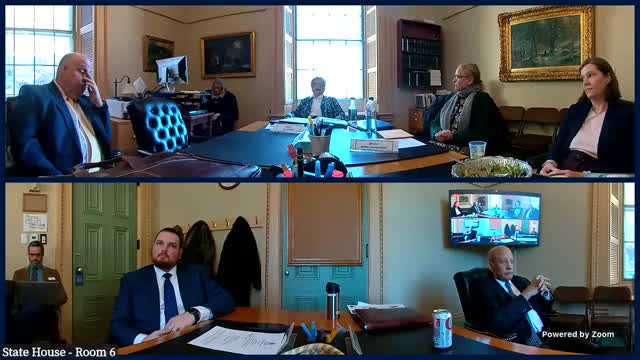Senate Finance committee to review education funding, property-tax options after $70 million one-time buydown
Get AI-powered insights, summaries, and transcripts
Subscribe
Summary
Sen. Ann Cummings said the Senate Finance Committee will dig into education funding — including the foundation formula and income-based proposals — and examine whether unanticipated revenue reduces the need to replace a $70 million one-time property-tax buydown used last year.
Sen. Ann Cummings, chair of the Senate Finance Committee, said the panel will hold a series of briefings and hearings to review how Vermont pays for education and whether unexpected revenue reduces the need to replace a $70 million one-time property-tax buydown used last year.
"We use $70,000,000 in one time dollars to buy down the property tax rate from 18 to 13 last year," Cummings said. "It is my understanding that unanticipated revenue has come in, so we may not have to start filling in $70,000,000 hole, which would be nice, but we need to verify that."
The committee plans an initial set of presentations next week, including an overview of state and regional education trends — enrollment, expenditures, staffing and special education — and a deeper dive into the pros and cons of Vermont's education funding system. Cummings said staff from the Department of Education will brief the committee, and that the committee will “work very closely with education” as it examines cost drivers.
Cummings reviewed two policy paths the panel is preparing to examine: a continuation or revision of the foundation funding formula used by most states and an income-based funding approach. "Forty-eight of them do at least some form," she said of foundation-style systems. On income-based proposals, the chair cautioned that the mechanics can be complicated: "Just everybody pays based on their income, but everybody is not the same," she said, noting equity and demographic complications such as long-time low-income homeowners living in high-value or resort-area properties.
The committee also discussed recently enacted "cloud" taxation, which was expected to raise about $37 million but produced closer to $30 million, according to Cummings. The panel will ask the tax department for more granular data, including how non-homestead appraisal and tax collections are tracking.
Cummings said the Legislature will receive the governor’s budget address later this month; she also noted the two revenue economists who set the state revenue forecast will provide numbers the committee will use while reviewing spending options. "We’re all sworn to silence until then," she said of the administration’s timetable, adding that the briefing schedule and materials will be posted to the committee’s Teams agenda.
Committee members flagged school construction and maintenance as a related issue. Sen. Chris Matos, who said he had served on a school-construction working group, offered to provide updates to the panel. Cummings said small towns that consider consolidating schools still face the practical barrier of ongoing building maintenance and expressed interest in developing funding or maintenance supports if consolidation recommendations move forward.
The committee intends to invite outside groups and stakeholders for testimony, including the NEA and the Public Assets Institute, and to review prior studies and reports that have analyzed Vermont's school funding and property-tax issues.
The panel did not consider formal legislation during the meeting; Cummings said staff will provide reports and additional briefing materials before the committee’s next convening.
